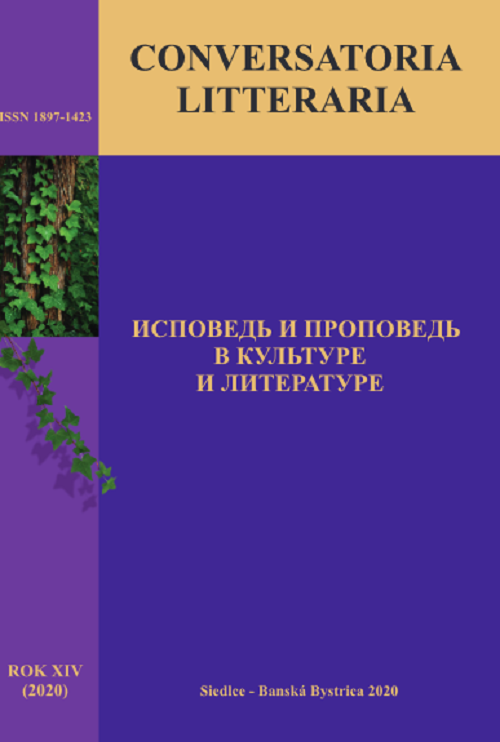ИСПОВЕДАЛЬНОСТЬ, ПРОПОВЕДАЛЬНОСТЬ И МЕМУАРНОСТЬ: ЦЕПЬ КЕЙС МИКРОСТАДИ
DOI:
https://doi.org/10.34739/clit.2020.14.01Keywords:
confession – preaching, memoirs, memoir literature, memoirist, boundary genres, soft focus, uncertainty, evasiveness, the lack of clear opinion, case microstudies, semihidden undercurrent of confessions and preachings in modern memoir literatureAbstract
The author of the present study deals with the contemporary state of memoir literature based on the analysis of some recent Czech and Slovak memoirs containing a spеcific strategy of the heterogeneous layers of confesisons and preachings. The problem of contemporary memoir texts is connected with the position of the memoirist in the society, his/her courage and openness. The author’s typology of the memoir literature is based on the three-level structure (theme, structure and genre, narrative strategy). He prefers to call it memoir literature аs its structure is very heterogeneous, and the fear of the memoirist, his anxiety and aversion to express too radical views lead to soft focus, uncertainty, evasiveness, the lack of clear opinions – these are the characteristic features of contemporary memoir literature as a reflection of the state of the world and the human of the second decade of the 21 century. Due to this, the confessions and preachings have been realised in a specific manner. These features are being demonstrated at the works written by Czech and Slovak writers, significant personalities of culture, politicians, artists etc. The modern and postmodern memoir literature realizes the confessions and preachings in a specific semi-hidden undercurrent which is being manifested at the example of a triple structure (memoirs, portraits, textual illustrations as attachments) of the memoirs by the Slovak literary critic, hungarologist, comparatist, and translator Rudolf Chmel.




